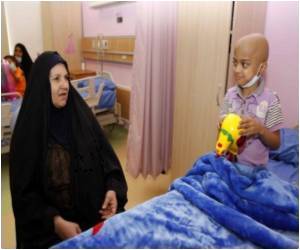Australian researchers believe they have found a way to target active the sarcoma (Src) gene. The autophagic targeting has been outlined on Nature Cell Biology's website.

Scientists at the University of Western Australia have found that autophagic targeting of Src promotes cancer cell survival following reduced FAK signaling could prove effective. Focal adhesion kinase (FAK) is a protein that determines how cells stick to each other and their surroundings and their spreading processes.
Research reagents prepared by Professor Wally Langdon from the UWA School of Pathology and Laboratory Medicine were used to help determine the mechanism by which another cancer-causing protein called Cbl contributes to this process. Cbl was found to sequester active Src and direct its trafficking and degradation by a process known as autophagy. Importantly if autophagy was inhibited by deleting the Cbl protein then cancer cell death occurred.
Considerable evidence now links increased activity of Src to cancer development and this study has revealed new ways in which Src is regulated in cancer cells. This raises additional strategies for targeting signalling pathways in cancer cells, for example by the use of autophagy inhibitors. Professor Langdon said the joint research represented a significant step in understanding the way cancer cells respond to high levels of activated Src.
"The evidence suggests that Src influences the life or death decisions that cells make and so by affecting the localisation of this protein in cancer cells we can alter cell responses that are often found in cancer."
The finding raises new possibilities for drugs that not only inhibit Src's kinase activity but also drugs that determine where Src is localized in the cell, which ultimately determines its fate as a functional protein.
Advertisements
Source-Medindia






